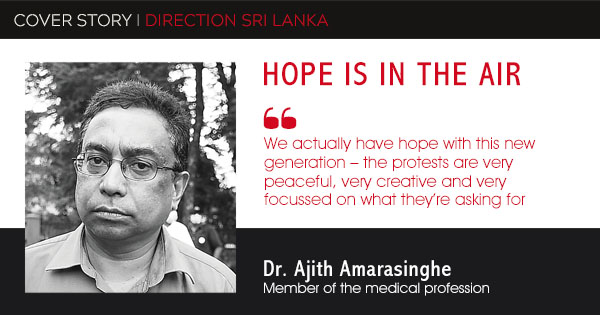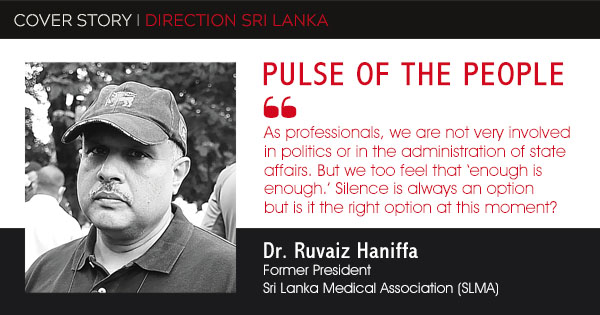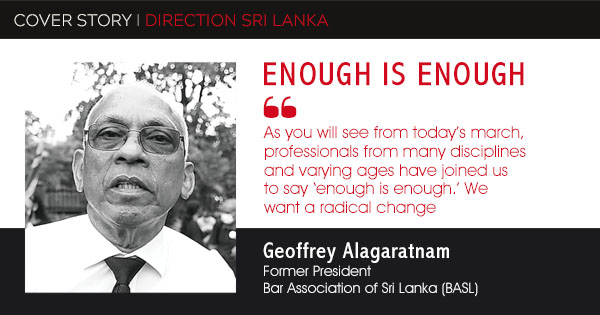REALITY CHECK

“I am an eternal optimist; and as a consequence, I do believe we can move towards a liberal democratic Sri Lanka,” quipped Dr. Paikiasothy Saravanamuttu – Founder and Executive Director of Centre for Policy Alternatives (CPA) – when asked whether he thinks the country can ever realise this vision, given the momentum the peaceful demonstrations have gained in recent weeks.
He added: “I also think the GotaGoGama protests in particular have added a new dimension to this revolution and introduced a new political culture. The protestors are determined to achieve their objectives peacefully with an emphasis on the basic tenets of liberal democracy – accountability and anticorruption – effectively ensuring that the kind of plunder and looting we have seen will not proceed into the future.”
Saravanamuttu then said that “a proper functioning liberal democracy will of course be one in which there will be space, acknowledgment, appreciation, enjoyment and celebration of the diversity of this country – where all the people of Sri Lanka will feel that they have a place and a stake, both in opinion and decision making.”
“Equality is tremendously important because accountability in the north and east appeared to be in terms of war crimes or crimes against humanity – and in the south, it was largely about corruption when we raised these issues during the election in 2015. These concepts need to be merged and used as the spearhead for a serious and committed movement towards creating a functional, liberal democracy,” he elaborated.
On the subject of good governance and conflict transformation in the country, he mentioned: “One rule of law for all is absolutely important. The Israeli philosopher Avishai Margalit said that institutions should not humiliate people and people should not humiliate each other. These are two broad general guidelines and the basic founding principles when it comes to creating a society that is based on good governance.”
“We absolutely need to get rid of institutions like the executive presidency where all power is concentrated in one individual. Further, strong laws need to be in place to ensure that we have independent state institutions that provide checks and balances on the exercise of executive authority – an impartial judiciary sans political interference is a must. We also need to bring in robust measures that provide for anticorruption on all fronts,” he urged.
Saravanamuttu stated that “more women and youth in parliament is also a requirement. We need to come up with a quota system that will have what I call a ‘sunset clause’ – i.e. it will not be there forever – until that proportion of the population is represented in national politics and elected office.”
Moving on to discuss the forex shortage and economic crisis, Saravanamuttu maintained that “rather than opting for an IMF bailout at the outset, the government resorted to protracted power cuts, import restrictions, and bilateral loans and credit lines, from China and India. Sri Lanka only recently started formal negotiations seeking financial support from the IMF, reversing the government’s earlier stance.”
“The IMF will want to make sure there is political stability in the country, along with debt servicing sustainability. It will undoubtedly expect taxes to be raised, public spending to be curbed and restructuring of loss making state owned enterprises. Therefore, I think things will get worse before they can get better; but in order for us to put ourselves on a stable footing, we have to grin and bear the losses and pain,” he elaborated.
He summed up as follows: “Whilst there are a few bitter pills that have to be swallowed, we have to make sure that in that process the poorest sections of the population are not disproportionately affected. They are already going through considerable pain and suffering.”
“Therefore, it is imperative to formulate a system for social protection so that the underprivileged can tide over the current situation,” Saravanamuttu added.




